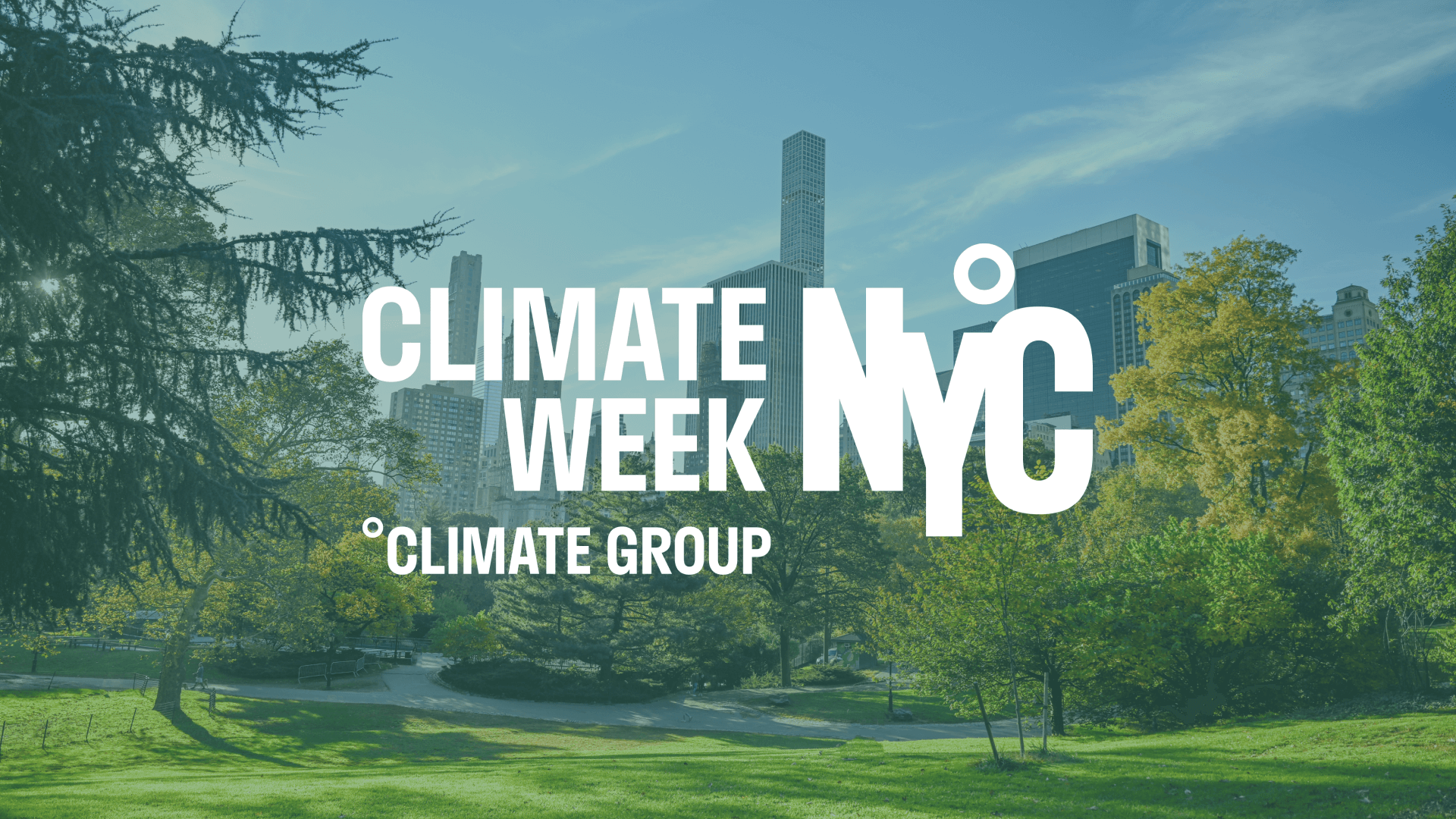Carbon Finance Philanthropic Donor Statement
Mobilizing capital through carbon finance
Climate change is a defining challenge of our time. The global scientific consensus is clear that to address climate change we must rapidly implement sweeping, systemic change across nearly every aspect of the global economy and transform the way that we interact with the natural world. Such change will require unprecedented, worldwide mobilization of financial and societal resources. To succeed, we will need every possible tool at our disposal to reduce and remove carbon in the atmosphere, and pursue the path towards a just, regenerative future.
High-integrity voluntary carbon markets (VCM) are one of these tools, and we acknowledge their current and potential role in providing a source of investment in nature-based climate solutions, the clean energy transition, and in local communities. A high-integrity VCM market is one in which the credits accurately quantify their climate impact, the rights of all stakeholders in carbon transactions are clear, benefits are shared equitably, and purchasers of credits make claims consistent with their rights to the credits and their own emissions reduction responsibilities.
Many of the VCM credits today do not meet the standards of a high-integrity market. In addition, some companies use credits in place of – rather than in addition to – science-based reductions of their own greenhouse gas emissions. Without significant changes, VCMs will not help meet climate goals, could harm local communities and violate human rights, and could slow the necessary transition away from fossil fuels.
We are glad that important work is underway to address demands for better practices in VCMs. We welcome and endorse the progress made by the Integrity Council for the Voluntary Carbon Markets (IC-VCM) and Voluntary Carbon Markets Integrity Initiative (VCMI), for providing clarity on how carbon credits could play a role in strengthening climate action. Their work in defining end-to-end transparency and integrity in the use and supply of carbon credits is central to unlocking supply and demand for high-quality carbon credits. They also establish the norm that companies that engage in carbon markets should meet certain foundational criteria2. Among other things, companies should adopt and follow credible, science-aligned net-zero decarbonization pathways, and only use carbon credits in line with VCMI’s Carbon Integrity Claims to address remaining emissions that cannot be readily reduced. We are grateful to the wide range of stakeholders and experts that have lent their support to these processes.
We recognize that stronger philanthropic donor coordination and support are also needed to help develop all forms of carbon finance (as well as to advocate for broader public and private climate finance to address mitigation, adaptation, and loss and damage needs), particularly among countries in the Global South. This includes: developing carbon and climate-linked bonds, supporting the implementation of both non-market and market approaches under Article 6 of the Paris Agreement, helping expand domestic carbon pricing schemes, scaling high-integrity carbon markets, exploring the interoperability between voluntary and regulated markets, and increasing bilateral and multilateral support to readiness and emission reduction actions. Transparency, equity, and environmental integrity must be at the heart of all of these.
We aim to provide a unified approach to philanthropic funding, advancing a landscape of active initiatives that reflect a shared vision of high-integrity carbon finance – while ensuring that low-integrity carbon finance comes to an end. To do this, we must draw on the different experiences and perspectives from the full range of stakeholders involved in and affected by carbon finance. We will convene regular dialogues among donors and hold co-creation dialogue sessions with critical carbon finance stakeholders (including low and middle-income countries (LMIC), Indigenous Peoples and Local Communities, and practitioners).
Today, we demonstrate our support for the mobilization of capital through high-integrity carbon finance tools. We announce a collective pledge to align our funding in accordance with the following principles:
- Improving transparency, harmonization, risk assessment and disclosure to support robust and high-integrity carbon markets
- Establishing and implementing mechanisms of grievance and accountability to end low-integrity VCM transactions
- Prioritizing the needs and rights of Indigenous Peoples and Local Communities through clear and aligned policies, standards, and procedures for Free, Prior and Informed Consent, benefit sharing, social safeguards, and community engagement, building from the extensive new requirements included in the ICVCM Assessment Framework and aligned with the U.N. Declaration on the Rights of Indigenous People (UNDRIP)
- Supporting LMICs to build the carbon finance technical capacity they need, at the national and sub-national level, to enable effective participation and domestic development of a range of carbon finance tools
- Development of new, high-integrity compliance markets and carbon pricing mechanisms, and supporting the interoperability and possible convergence of the regulated and voluntary carbon finance systems
We call on other donors to align their funding to these principles and invite them to join us in support of this important agenda. We also encourage companies and financial institutions to engage in high-integrity carbon markets now, recognising that they will continue to improve in response to constructive feedback.
Signatories:
Bezos Earth Fund
Bloomberg Philanthropies
Children’s Investment Fund Foundation (CIFF)
ClimateWorks Foundation
European Climate Foundation (ECF)
High Tide Foundation
Institute for Climate and Society (iCS)
Packard Foundation
Rockefeller Foundation
Sequoia Climate Foundation
Signatory quotes:
“High-integrity carbon finance tools – domestic and international, voluntary and regulated – can play a critical role in mobilizing much needed capital in the fight against climate change. We are quickly running out of time and must work together to create the transformative change that is needed.” Sonia Medina, Chief Ecosystem Development Officer & Exec Director, Climate, Children’s Investment Fund Foundation
“We are in good company with this group of donors who are committed to aligning funding to deliver high integrity carbon finance tools,” said Dr. Andrew Steer, President and CEO, Bezos Earth Fund. “There is growing interest in ensuring that the overall ecosystem adds up to more than the sum of its parts, and that high-integrity VCMs get on the fast track. Effectively mobilizing the much-needed finance for climate and nature is a big step in the right direction.”
“We support policy makers to explore opportunities to create more enabling policy environments for the development of compliance systems, scaling of high-integrity voluntary markets and linking of carbon market regulations to the UNFCCC framework under the Article 6 mechanism.” Helen Mountford, President and CEO, ClimateWorks Foundation
“A high-quality carbon market mobilizes capital to serve the urgent needs for transformational climate action for the people in the Global South, who are most exposed to the inequity of climate change. We look forward to working with other philanthropists to ensure we build the next generation of markets that embody “carbon done correctly” and continue to deliver real climate impacts and social benefits for people and the planet.” Richard and Dee Lawrence, Founders, High Tide Foundation
“In the Voluntary Carbon Market as it exists today, the incentives for both buyers and sellers are creating a race to the bottom, undermining environmental benefits and harming local communities. Philanthropy must ensure that a regulatory framework and accountability mechanisms are in place that allow for only high integrity credits to be traded, ensuring positive environmental impacts and safeguarding community well-being.” Walter Reid, Vice President for Environment and Science, David and Lucile Packard Foundation
Footnotes
[1] Financial tools that assign a monetary value to carbon emissions. This statement takes an inclusive approach to carbon finance, including voluntary carbon markets, as well as compliance markets, Article 6.2 and 6.4 mechanisms, carbon taxes, carbon-linked bonds.
[2] https://vcmintegrity.org/wp-content/uploads/2023/06/VCMI-Claims-Code-of-Practice.pdf

